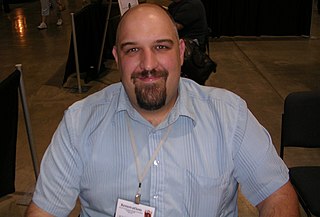A Quote by Robert Fitzgerald
Of course the other and more serious way in which it all happens is that one finds in poems and language some quality one appropriates for oneself and wishes to reproduce.
Related Quotes
He who always seeks more light the more he finds, and finds more the more he seeks, is one of the few happy mortals who take and give in every point of time. The tide and ebb of giving and receiving is the sum of human happiness, which he alone enjoys who always wishes to acquire new knowledge, and always finds it.
Wishes of one's old life wither and shrivel like old leaves if they are not replaced with new wishes when the world changes. And the world always changes. Wishes get slimy, and their colors fade, and soon they are just mud, like all the rest of the mud, and not wishes at all, but regrets. The trouble is, not everyone can tell when they ought to launder their wishes. Even when one finds oneself in Fairyland and not at home at all, it is not always so easy to remember to catch the world in it's changing and change with it.
Being a slow reader would normally be a deficiency; I found a way to make it an asset. I began to sound words and see all those qualities - in a way it made words more precious to me. Since so much of what happens in the world between human beings has to do with the inconsideration of language, with the imprecision of language, with language leaving our mouths unmediated, one thing which was sensuous and visceral led to, in the use of language, a moral gesture. It was about trying to use language to both exemplify and articulate what good is.
We often tend to think that the executive wishes to maintain standard, wishes to reach a certain quality of production, and that the worker has to be goaded in some way to do this. Again and again we forget that the worker is often, usually I think, equally interested, that his greatest pleasure in his work comes from the satisfaction of worthwhile accomplishment, of having done the best of which he was capable.
If you are serious, and you want to make a living as an author, then you need to hustle. Period. If you can't make that quality, then you need to concentrate on your craft and practice more. One other thing, quality comes with practice. If you are prolific, then you become a better writer because you are writing. The more you do anything the better at it you will become. So in a way, quantity does add to quality.
She alone dares and wishes to know from within, where she, the outcast, has never ceased to hear the resonance of fore language. She lets the other language speak - the language of 1,000 tongues which knows neither enclosure nor death. To life she refuses nothing. Her language does not contain, it carries; it does not hold back; it makes possible.
Against the suffering which may come upon one from human relationships the readiest safeguard is voluntary isolation, keeping oneself aloof from other people. The happiness which can be achieved along this path is, as we see, the happiness of quietness. Against the dreaded external world one can only defend oneself by some kind of turning away from it, if one intends to solve the task by oneself.
It has not been definitively proved that the language of words is the best possible language. And it seems that on the stage, which is above all a space to fill and a place where something happens, the language of words may have to give way before a language of signs whose objective aspect is the one that has the most immediate impact upon us.
I require silence to write the way an apple tree requires winter to make fruit. Being with people is intimate and joyous, but at some point, I'll wander off by myself. The paradox is that what began in childhood as an act of necessary solitude has led me straight to a life with others, in which I fly to China or Lithuania or northern Minnesota to read my poems and talk with other people who love language made into a lathe on which a life can be tuned and be turned.
... poetry is not a luxury. It is a vital necessity of our existence. It forms the quality of the light within which we predicate our hopes and dreams toward survival and change, first made into language, then into idea, then into more tangible action. Poetry is the way we help give name to the nameless so it can be thought. The farthest horizons of our hopes and fears are cobbled by our poems, carved from the rock experiences of our daily lives.
In recognizing that words have power to define and to compel, the semanticists are actually testifying to the philosophic quality of language which is the source of their vexation. In an attempt to get rid of that quality, they are looking for some neutral means which will be a nonconductor of the current called "emotion" and its concomitant of evaluation.


































